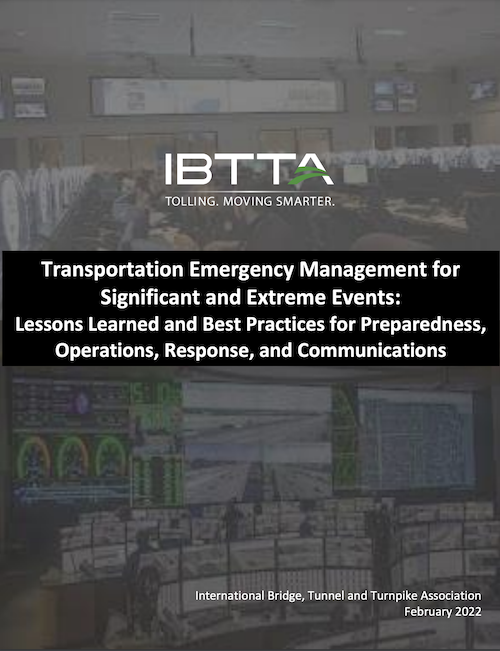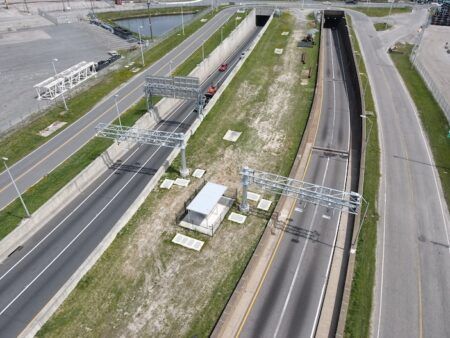The International Bridge, Tunnel and Turnpike Association (IBTTA), is urging the development of an official playbook to help transportation operators react to extreme weather events and has released a new white paper that offers key factors, best practices, lessons learned, and new technologies for event emergency management and response.
Severe weather conditions appear to be getting more frequent and extreme due to climate change. Four separate snowstorms in Virginia, Kentucky, Texas, and Greece left thousands of drivers stranded in their cars for hours in early 2022, which the IBTTA says should serve as a wake-up call for transportation operators to be prepared to address
“The industry has focused for several years on preparing and mitigating issues related to extreme weather events, not only snow, but also extreme flooding, wind, and other natural disasters,” says Mark Muriello, director of policy and government affairs for IBTTA. “However, we are reaching a crossroads where the events are going to become more extreme, disruptive, and dangerous. A coordinated effort will be needed across many organizations to mitigate against the worst effects of climate change on our roadways and to protect the safety of travelers and emergency response personnel.”
 Transportation operators have faced a growing expectation from motorists and government officials that the transportation system will function for emergency mobility purposes throughout an event and recover rapidly afterwards, the report says. In response, transportation operators are advancing organizational changes, new standards and procedures, and substantive workforce development and training.
Transportation operators have faced a growing expectation from motorists and government officials that the transportation system will function for emergency mobility purposes throughout an event and recover rapidly afterwards, the report says. In response, transportation operators are advancing organizational changes, new standards and procedures, and substantive workforce development and training.
The white paper identifies critical success factors that operators should address to improve their management, including:
· Planning and readiness · Continuous improvement and practice · Ongoing situational awareness · Robust and coordinated communications capabilities and channels
The white paper also calls for a larger role for technology and data. Transportation information systems are becoming more prevalent at regional levels, allowing integration and information sharing among a broad set of transportation operators, public safety organizations, incident responders (e.g., fire, tow, and medical first response), and government agencies at all levels.
“As weather patterns become more severe, we are experiencing what are called 100-year storms more frequently,” says Pat Jones, executive director and CEO of IBTTA. “The toll industry takes climate change seriously, and we’re working to help our operators prepare for and address these issues now.”
IBTTA will host several events throughout the year that will address climate change’s impact on the tolling industry, including a session at the upcoming 2022 Technology Summit taking place March 19-22 in Orlando, FL.





